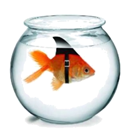英语周报2020-2021高二课标第20期,小编收集了英语周报2020-2021高二课标第20期的相关答案,没有答案的敬请期待!完整版的周报答案关注wx号:趣找答案
1. 阅读理解
WISH YOU WERE MORE CREATIVE?
I want to
ask you a favor. I have a pair of pants. Tell me: How many different ways can I
put a pair of pants to use? Now imagine you're an architect. Same question. Now
imagine you're Bill Gates. A scuba diver. A medieval knight. You still have the
pants. What alternative uses come to mind?
What you
just practiced--the conscious act of "wearing" another self-is an
exercise that, according to psychiatrist SriniPillay, MD, is essential to being
creative.

One great irony (讽刺) about our collective addiction to creativity is that we tend to frame it in uncreative ways. That is to say, most of us marry creativity to our concept of self: Either we're "creative" or we aren't, without much of a middle ground. "I'm just not a creative person!" a discouraged student might say in art class, while another might blame her talent at painting for her difficulties in math, making a comment "I'm very right-brained."
Dr.Pillay, an assistant professor at Harvard University, has spent years overturning these ideas. He believes that the key to unlocking your creative potential is to challenge the stereotyped (陈词滥调的) advice that urges you to "believe in yourself." In fact, you should do the opposite: Believe you are someone else.
He points to a study showing the impact of stereotype on one's behavior. The authors, psychologists Denis Dumas and Kevin Dunbar, divided their college student subjects into two groups, instructing one group to think of themselves as "eccentric poets" and the other to imagine they were "rigid librarians". The researchers then presented them all with ordinary objects, including a fork, a carrot, and a pair of pants, and asked them to come up with as many different uses as possible for each one. The former group came up with the widest range of ideas, whereas the latter had the fewest.
These results suggest that creativity is not an individual characteristic but a "product of context and perspective". Everyone can be creative, as long as he or she feels like a creative person.
Dr. Pillay's work takes this a step further: He argues that simply identifying yourself as creative is less powerful than taking the brave, creative step of imagining you are somebody else. This exercise, which he calls psychological Halloweenism, refers to the conscious action of "wearing" another self. An actor may employ this technique to get into character, but anyone can use it. According to Dr. Pillay, it works because it is an act of conscious unfocus, a collection of brain regions that spring into action when you're not focused on a specific task or thought. Most people spend nearly half of their days in a state of "unfocus." This doesn't make us lazy; it makes us human.
Imagining yourself in a new situation, or an entirely new identity, never felt so productive. You're making yourself more creative, and you're giving yourself permission to do something you'd otherwise feel guilty about.
(1)What's the function of the questions in paragraph 1?
A . To lead in the topic.
B . To make a comparison.
C . To state an opinion.
D . To ask a favor.
(2)The study led by Denis Dumas and Kevin Dunbar proves
A . creativity is an individual characteristic
B . librarians are more creative than poets
C . ordinary objects can improve creativity
D . your creativity is determined by yourself
(3)According to Dr. Pillay, Halloweenism works because .
A . it is an act of unconscious focus
B . certain brain areas begin to act together
C . people are in a state of laziness
D . all actors employ this technique
(4)If you want to be more creative, you are supposed to .
A . focus on a specific task
B . believe in your own talent
C . pretend to be someone else
D . turn to be right-brained